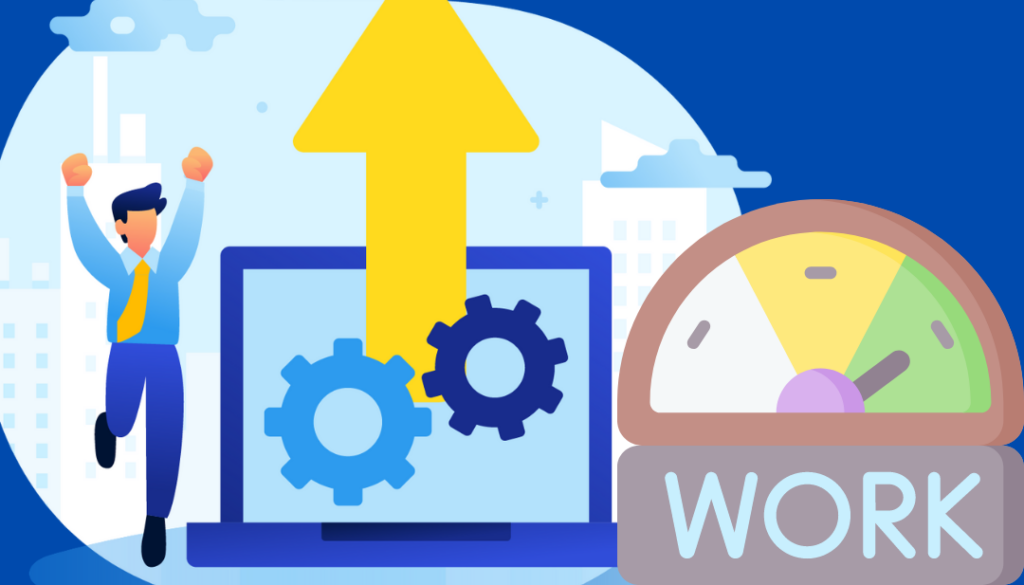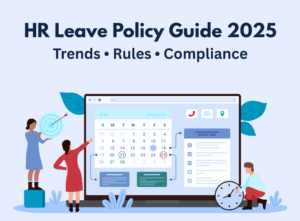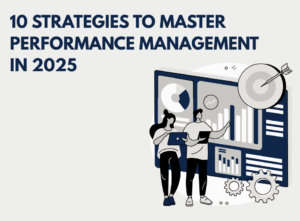The rapid pace of technological advancement and changing workplace demands have created an urgent need for upskilling in today’s workforce. Upskilling refers to developing new skills or enhancing existing skills to meet the evolving needs of the job market. In today’s fast-paced and dynamic work culture, upskilling has become essential for employees and employers.
Upskilling is important to enhance HR skills and to equip employees with the knowledge to excel in their roles and advance their careers.
One of the most significant advantages of upskilling is the ability to remain relevant in a rapidly changing job market. As new technologies emerge, traditional jobs become obsolete, and new skill sets are in high demand. By upskilling, employees can stay ahead of the curve and acquire the skills necessary to adapt to new job requirements. This adaptability helps employees remain relevant and marketable in an ever-changing job market.
Want to enhance HR Skills? Investing in upskilling is always a smart decision.
Upskilling brings increased productivity and efficiency.
As employees develop new HR skills, they become more efficient and effective in their roles, leading to improved job performance and greater success in managing talent, employee relations, HR analytics, and compliance, among other critical functions. When upskilled, HR professionals are better equipped to handle complex tasks and take on new responsibilities, increasing job satisfaction and motivation while positively impacting the organization’s bottom line.
Enhance career prospects.
Another significant advantage of upskilling is the ability to enhance career prospects. Employees developing new skills are more in demand by employers, increasing career opportunities and earning potential. Upskilling can open up new career paths, leading to career advancement and greater job security.
Upskilling makes a more skilled and competent workforce.
Employers can create a more knowledgeable and skilled workforce by investing in employee development and improving customer service, product quality, and overall organizational performance.
It creates a more skilled and competent workforce.
Upskilling can also lead to a culture of continuous learning and development within an organization, creating a positive and innovative work culture. Upskilling is essential in today’s workforce to remain relevant, increase productivity, enhance career prospects, and create a more skilled and competent workforce.
With the rapid pace of technological advancement and changing workplace demands, upskilling has become a necessity rather than an option. Both employees and employers must recognize the importance of upskilling and invest in ongoing learning and development opportunities to remain competitive in the job market and drive organizational success.
Upskilling your current team members can benefit both your organization and your employees.
Are you also looking for ways to upskill your existing team? Here are our recommendations for you:
-
Identify skills gaps
Start by identifying the existing skill gaps in your current team. Determine which skills required for HR and employees are essential for your business and which your team lacks.
-
Provide training opportunities
Give your team members opportunities to acquire the necessary skills. You can do this through in-house training, online courses, attending workshops, or partnering with external training providers. When employees receive proper guidance and relevant learning resources, they’re more likely to take ownership of their roles and pursue growth within the company. Continuous learning not only equips them to handle evolving job demands but also boosts their confidence and engagement. Investing in well-structured courses from reliable platforms, such as Skills U, ensures that your team is not only keeping up but also growing with confidence and purpose.
-
Encourage cross-training
Cross-training can help your team members develop a range of skills. Encourage them to learn from their colleagues by rotating roles, working on different projects, or participating in job shadowing.
-
Offer mentorship and coaching.
Provide mentorship or coaching to help your team members develop their skills. Identify senior employees or external mentors who can guide and support your team.
-
Create a culture of learning.
Foster a learning culture by encouraging your team members to seek new opportunities to develop their skills. Recognize and reward their efforts to learn and grow.
-
Provide ongoing feedback
Provide ongoing feedback to your team members to help them improve their skills. Regular performance reviews can help identify areas for improvement and establish clear goals.
What is the Role of Upskilling for the Next Generation of HR Leaders?
- HR professionals face constantly evolving challenges and opportunities in today’s rapidly changing business environment. HR professionals must continuously develop and enhance HR skills and knowledge to stay relevant and effective.
- Upskilling refers to the process of acquiring new skills, knowledge, and expertise, either through formal training or on-the-job learning. For HR professionals, keeping pace with new trends, technologies, and best practices in the field is critical.
- Upskilling provides HR professionals with the tools and resources to stay competitive and succeed in their roles.
- Regarding HR manager skills, the HR function becomes increasingly data-driven and technology-dependent; upskilling in areas such as HR analytics, data management, and HR technology is essential.
- In addition to technical skills, upskilling helps HR professionals develop soft skills, such as communication, leadership, and problem-solving. These skills are essential for building strong relationships with employees, managers, and other stakeholders and navigating complex HR challenges, such as employee relations and talent management.
Upskilling HR Skills: What are the trends?
- Some key trends in upskilling for HR professionals include a growing emphasis on data and analytics and the increasing use of technology in HR functions such as recruitment, onboarding, and performance management.
- As HR managers’ skills become more data-driven, they must develop data analysis and interpretation, analytics, and management skills to leverage data for decision-making effectively.
- Another trend for upskilling the qualities of HR managers is the growing focus on soft skills such as communication, leadership, and problem-solving. These skills are essential for building strong relationships with employees, managers, and stakeholders for navigating complex HR challenges.
Are there any challenges in the upskill development mission?
Upskilling in HR also comes with several challenges, such as:
- Balancing the time and resources required for training with the demands of day-to-day HR responsibilities.
- Identifying the most relevant and effective upskilling opportunities for their specific role and organization.
- Utilizing these HR skills for growth opportunities by staying competitive.
Final Words
Despite a few challenges, there are numerous opportunities for growth through upskilling in HR. For example, upskilling can lead to increased job satisfaction and motivation, improved job performance, and greater opportunities for career advancement. It can also help organizations attract and retain top HR talent by offering professional development and growth opportunities.
Overall, upskilling in HR is a critical tool for staying competitive and driving success in the field. By staying current with trends, technologies, and best practices, HR professionals can enhance their ability to manage talent effectively, build strong relationships, and drive organizational success.





